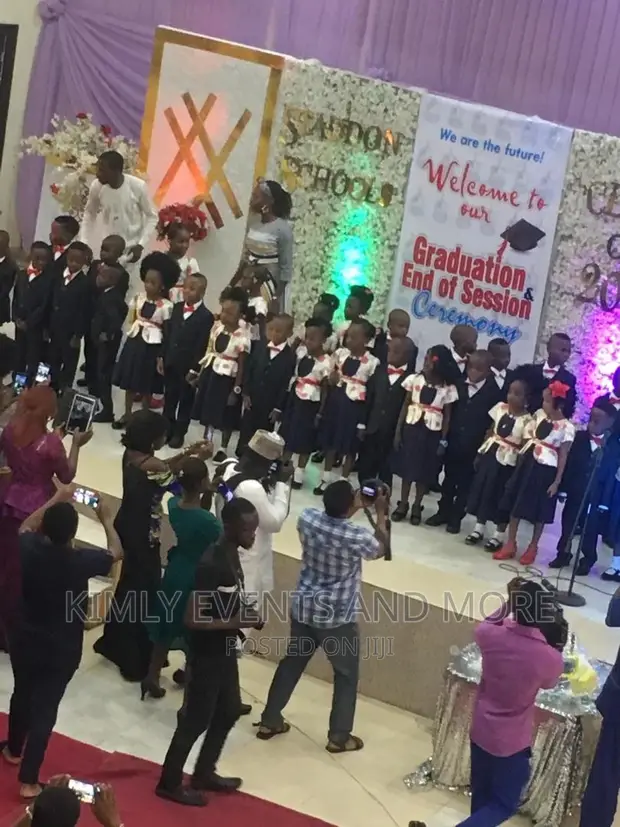Education
Ogun And Oyo Join Other States To Ban Graduation Parties In Schools

Ogun State Government has banned extravagant graduation ceremonies across schools in the state, restricting such celebrations to pupils completing Primary Six, Junior Secondary School Three (JSS 3), and Senior Secondary School Three (SS 3).
The state’s Commissioner for Education, Science and Technology, Prof. Abayomi Arigbabu, said the decision aims to curb the growing culture of excesses often associated with school graduation parties.
Speaking on the state’s preparedness for the 2024/2025 academic session, Prof. Arigbabu explained that the directive was necessary to promote moderation and ease the financial burden on parents.
“Graduation ceremonies should be modest and reflect true academic milestones rather than turn into lavish social events,” he said, expressing concern that elaborate celebrations for nursery, kindergarten, and other non-transition classes had placed undue pressure on parents while distracting from the essence of education.
In addition, the government directed that schools must strictly adhere to a six-year cycle before effecting any change in textbooks.
Prof. Arigbabu said no school is permitted to alter prescribed books until such materials have been in use for at least six academic years, stressing that frequent changes have worsened the financial strain on parents.
“Quality education does not depend on frequent textbook changes but on effective teaching and proper use of available resources,” he noted, warning that schools that impose unnecessary book changes would face sanctions.
The commissioner assured that the ministry would monitor compliance closely, adding that the policy aligns with the state’s broader reforms to make education more affordable and impactful.
He urged parents, school administrators, and teachers to support the initiative, assuring them that the decision was in the best interest of learners and their families.
Also, the Oyo State Government banned “sign out” celebrations by final-year students in both public and private secondary schools across the state.
This directive comes in response to increasing reports of misconduct, violence, and public disturbances associated with such events
“Sign out” celebrations, where final-year secondary school students mark their last day with processions, writing on uniforms, loud gatherings, and sometimes street displays, have become common in many Nigerian states over the years.
While often seen as a rite of passage, the practice has also been linked to unruly behaviour, vandalism, accidents, and public disturbances.
Oyo State’s decision to enforce a ban aligns with these concerns and comes amid wider efforts to strengthen discipline in schools, including restrictions on mobile phone use, monitoring of approved textbooks, and curbing illegal levies.
The move also reflects the government’s emphasis on student welfare, safety, and the preservation of a conducive learning environment.
The Commissioner for Education, Science and Technology, Olusegun Olayiwola, disclosed this during the 2025/2026 pre-resumption meeting with public secondary schools principals, held at Lagelu Grammar School, Ibadan, on Friday.
Olayiwola, in a statement by the state Commissioner for Information and Orientation, Dotun Oyelade, in Ibadan, the state capital, also reiterated the enforcement of the existing ban on mobile phone usage by students in schools.
He emphasised that such devices pose significant distractions, facilitate access to non-educational content, and can contribute to cyberbullying and misconduct.
The commissioner said, “Schools must remain free of violence, bullying, and intimidation to protect adolescents during their formative years.
“The State Government is using this period to officially ban ‘sign out’ celebrations by final-year students in both public and private secondary schools across the state.
This directive comes in response to increasing reports of misconduct, violence, and public disturbances associated with such events.
“In addition, principals are directed to recommend only government-approved textbooks, selected for their quality, reusability, and alignment with the curriculum. Compliance with these directives will be closely monitored by the ministry,” he warned.
The commissioner also commended principals for their dedication to shaping young minds and maintaining educational standards in the state.
He stressed that no student should face financial barriers in pursuit of education, and principals must avoid unauthorised levies or illegal fees to ensure education remains accessible.
He highlighted the importance of staff punctuality and active engagement in teaching, while underscoring the need to maintain student safety and security.






















